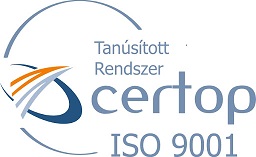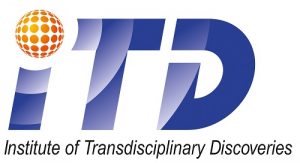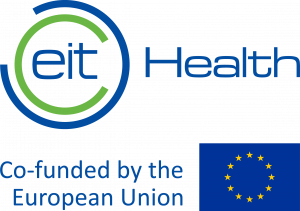Education
The development of science has now made it possible for a scientific discipline to thoroughly get to know and understand the phenomena taking place in the world, to document them in its own language, and to teach the accumulated knowledge. At the same time, these phenomena cannot be examined by only one field of science, as the same can be studied by other sciences, approached from different perspectives. It follows from the above that the methodology of education can also be inter- and transdisciplinary.
Our institute was established in 2018, among other things, with the aim of developing common courses from approaches of different disciplines with different focus and methodology, but examining the same phenomenon, and at the same time from the perspective of several sciences and arts expecting students. Not only international educational trends, but also the actual changes in our world justify this new, more holistic educational methodology, and the widest possible introduction of courses developed in this spirit.
Thus, one of the functions of the ITD is to develop and teach courses that meet these challenges and ensure the transition between disciplines. A good and working example of this is "Sell yourself!" course, which provides students with the skills they need to succeed, or “Medical Humanities,” which provides insight into common sections of the medical and human sciences, such as the concept of value. The “Atomic Stories” presents the advantages and disadvantages of the use of nuclear energy, its operating principle and its role in the energy industry, its social perception, and the use of radiation in medicine. The special feature of “Hedonism in practice” is that it provides students with a complete picture of the actions they experience as a source of pleasure (drugs, gambling, gastronomy, alcohol, sex, etc.) based on neurobiological, social, legal and other aspects. “House MD and Philosophy” in Dr. House. discusses philosophical and ethical issues in relation to popular topics in the series. “Tapestry of values in science” revolves around scientific and scientific values. The lecturers of the various faculties of the University of Pécs, international guest lecturers and external specialists also take part in the teaching of the above courses.
Nem kizárólag egy-egy kurzus indítása vált céllá, hanem specializációk, illetve önálló oktatási programok kialakítása is folyamatban van. Így a közeljövőben kerül elindításra a „Bsc in Integrated Sciences with Humanities” angol nyelvű programunk, mely a természettudományokat ötvözi a bölcsész- és társadalomtudományokkal. Ennek részleteiről, valamint az indított kurzusainkról ezen a weboldalon tájékozódhat az érdeklődő!
More detailed description of courses
Theoretical and practical development of basic public speaking skills.
Topics covered:
Arisztotelész iránymutatásai. Ethos-Pathos-Logos. Mitől lesz hatékony egy előadás? A hallgatóság felkészítése. Miért félünk a nyilvános beszédtől? Az első benyomás jelentősége, szakaszai, evolúciós háttere. A megkapó Cím. A hallgatóság felmérése, kontroll alatt tartása. Bevezetés. A tartalom csomagolása. A figyelemfelkeltés, hatáskeltés eszközei. Az előadás fő mondanivalójának meghatározása. A figyelmi készség. A hallgatóság kihívásai, s az azokhoz való alkalmazkodás lehetőségei. Szemkontaktus. A hallgatóság bevonásának és a magabiztosság sugárzásának eszközei. Hanghordozás. A Mosoly. Humor, Irónia, Önirónia. 1-3-5-7 – Egy kis számmisztika… Vizuális eszközök alkalmazása . Flipchart, tábla, laserpointer használata. Diagramok, grafikák készítésére vonatkozó irányelvek. A személyes tér szabályai és törvényszerűségei az adott előadói helyzet és kulturális hatások tükrében. Testbeszéd.
Get in touch with: Dr. József L. Szentpéteri
Theoretical and practical development of your presentation skills - Advanced level
Topics covered:
The structure of the presentation. Introduction (Principium), Narration (Narratio), Diversion (Egressus), Suggestion, Argumentatio, Confirmatio, Refutatio, Peroratio. Rhetorical elements. Studying the genre of storytelling in scientific, educational, and entertaining environment. Audience involvement. Closing of the lecture. Design and construction of our slides. Basic communication differences in between genders. Basic dress and behavioral etiquette during public speaking. Methodology of practice and preparation. Management over time. Use of technical accessories. The facilities of the lecture hall. Personality types. Berne's ego-stages. Overcoming excitement. Stress management techniques.
Get in touch with: Dr. József L. Szentpéteri
This course focuses on the practical aspects of a successful presentation and undergraduate research work by improving IT skills. The aim is to improve participants' delivery skills to be ready-to-use. Course smoothly address the technical barriers to public presentation regarding scientific work, thesis, and later medical careers. Thus, during the lectures and exercises, we place special emphasis on developing skills using the most common research and presentation software. We create content and show design recommendations in line with current design trends, all distilled in a professional medical style. Software: OneDrive, Power Point, Word, Mendeley, Endnote, Adobe Creative Suite.
Get in touch with: Dr. József L. Szentpéteri
Aim of the course is to prepare students for exams, further job interviews and other stressful situations, where not just knowledge, but mental stage and correct behavior counts as well. Course offers guidelines for proper behavior, mental preparation, attitude, outfit, questions and answers for the raised questions. In addition, course is focusing on professional resume writing as well, which is just as crucial during university years as it will be after graduation. Course provides universal guidelines and specific, individual suggestions for each student participating in the course. At the end, everyone will end up with a completed one page resume and a LinkedIn profile.
Get in touch with: Dr. József L. Szentpéteri
Aim of the course is to help students in personality type recognition and perform appropriate, effective communication with all of them in everyday practice. Several personality typologies exist. However, one thing is common: every type requires different communication to avoid conflicts and reach results. This course help in the so important self-awareness. Everyone will receive exact guidelines to determine themselves at first. Later we learn, how to recognize the types in other people. Course offers guidelines for proper behavior, mental awareness and attitude towards each type of people. Through several role-plays we learn how to perform the best in different situations.
Get in touch with: Dr. József L. Szentpéteri
Metacommunication, body language bears with great importance in everyday life. People's relationship with each other is fundamentally influenced by their movements and facial expressions, even before they even start speak up. Body language is a key element in building trust, effective communication, and ultimately affects the success of therapy. The aim of the course is to give students as deep knowledge as possible about the importance of body language, the meaning of each movement and gesture, and its effect on another person. During the lessons we place great emphasis on practical training and the development of self-awareness.
Get in touch with: Dr. József L. Szentpéteri
A kurzus célja a manuális készségek, a türelem, az összpontosítás, precíziós műveletek és a monotonitás tűrésének fejlesztése. Mindez olyan alternatív, alacsony költségvetésű módon, amely nemcsak örömet okoz, hanem műalkotást is teremt. A tantárgy keretein belül a hallgatók csiszolhatják kézi készségeiket a hagyományos húsvéti tojás készítési módszerek számos fázisának művelésével. Tevékenységek: karcolás és gravírozás professzionális gravírozóval; fecskendő és orvosi tű használata; viasz olvasztás; viasz precíziós felvitele egyenetlen felületre; precíziós festés; ecetsavas maratás. A kurzust sokéves tapasztalattal rendelkező oktató vezeti, aki „Népi Iparművész” címmel rendelkezik. Vendégelőadóként további népi iparművészek is részt vesznek az oktatásban.
Get in touch with: Dr. József L. Szentpéteri
The Institute of Transdisciplinary Discoveries of the University of Pécs intends to support the interpretation of ionizing radiation across different disciplines and professions in the form of a series of lectures with an interdisciplinary approach. During the insight into selected chapters on the topic of radioactivity, the audience gets acquainted with radioactivity, its environmental-biological effects, the operation of nuclear power plants, the radiation health consequences of nuclear disasters, and nuclear environmental protection, radiation protection and economic effects. The aim of the course is to present selected chapters of radioactivity in an informative and interactive way, therefore it does not require special radiological knowledge. The main target audience of the course is a university student who wants to expand their knowledge and partly their experience in the topics outlined in the introduction.
There are many habits and joys in life that people love because they make their lives joyful (e.g., gastronomy, games, alcohol, sex, gambling, social media, etc.). The brain is the organ of man that transforms physical and mental stimuli into pleasure. At the same time, we can get used to pleasures, they can make us addicted, and the price of addiction is much more than just hedonism or a bad habit. They can cause many mental and physical illnesses, personal crises, while looking at the health side of the thing, there are many expenses generated by their cure. However, the problems posed by addiction also appear at the societal level, from a legal, economic or other point of view. The course deals with pleasure and addictions based on brain function, but the focus is not just on health. It also defines what pleasure makes pleasure, and how it can turn into an addiction that threatens people, health and society. The concept of the course is that several disciplines study the phenomenon, so in addition to neurobiology, based on sociology, economics and law, the student gets a much more detailed, whole picture of the context, understanding it in a more holistic way. Therefore, faculty members of the Faculty of Medicine and other Faculties teach the course together, supporting what has been said with practical experience. A good practical example is a gastronomic experience - which immediately explains why hedonism in practice is the title of the course - during which a meal and the science that explains it can be experienced together with practical methods.
The course, Medical Humanities, presents an interdisciplinary field of science that is present in medicine as a common intersection of seemingly distant sciences. This discipline includes the humanities (such as philosophy, ethics, history, comparative literature and religion), the social sciences (such as psychology, sociology, anthropology, cultural studies, health geography), and the arts (such as literature, theater, film, fine arts) and shows their presence and application in medical education and practical medicine. The medical humanities is a special approach that demonstrates that the arts, social sciences, and humanities offer significantly more than the role they currently play in medical education. The course demonstrates how the aforementioned sciences look at human history, culture, and behavior from different perspectives, and also teaches how aggregated experiences can be used in the day-to-day operation of health systems.
During the course, we will discuss fundamental and core problems of medical ethics, philosophy, logic, psychology and methodology with the help of the popular TV show, “House, MD”. At each of the lectures, we will watch one episode from the show (40 minutes), and then we discuss the given topics of the week. The aim of the course is to familiarize students with the basic notions and questions of ethics and philosophy in an understandable and useful manner; furthermore, students shall be able at the end of the course to recognize philosophical and ethical issues in everyday life situations and should be able to identify scientific problems through the lenses of their common experience of the patients. Knowledge dissemination and domestication strategies will be dealt with from an interdisciplinary perspective (utilizing the methodological credo of “House MD”), thus the course might be attractive to students with different backgrounds and level of education.
Get in touch with: Dr. Ádám Tamás Tuboly
The Aim of this course is to introduce the complex web of “values in science” to students. While it is often claimed science aims at tracking the truth about the world, it is also assumed that it deals only with facts, data, and further measurable items. By taking into account the history of science, contemporary scientific practice and philosophical accounts of science and values, we offer students a fresh interdisciplinary account to understand how values influence our thinking about the world scientifically.
Get in touch with: Dr. Tuboly Ádám Tamás és Dr. Emil Toescu
Is science evolving? Is there progress in science? Do scientists describe the world and the truth? Who was a better physicist: Aristotle, Newton, or Einstein? Is their performance comparable at all? What does a scientific revolution look like? Are there any scientific revolutions at all, or are we just looking at the world through other glasses? Did Newton and Einstein live in the same world? How to understand different (scientific) cultures and theories? Throughout the course, we seek answers to these questions, mainly based on Thomas Kuhn’s “The Structure of Scientific Revolutions”. The book is considered by many to be one of the most important works of the twentieth century, be it in the natural, human or medical sciences. Kuhn described the history and nature of science in terms such as paradigm, dogma, paranoia, anomaly, crisis, revolution.
The aim of the lesson is to discuss the above issues together with the students in an interactive, dialogical way and to get to know better how science works and its place in society. During the course, students will acquire analytical and synthesizing skills that they can use in their later studies in order to navigate the mazes of the social context of science more easily.
Get in touch with: Dr. Ádám Tamás Tuboly
Oktatók: Lecturers: Dr. Miklós Nyitrai (UP Medical School), Dr. Attila Sík (UP Medical School), Dr. József László Szentpéteri (UP Medical School), Dr. Máté Iván Deák (UP Medical School), dr. Liber Noémi (UP Medical School), dr. Gruber Adél (UP Medical School), Halassy Zsolt (UP Medical School), Dr. Maróti Péter Dezső (UP Medical School), Kleschné dr. Csapi Vivien (UP Faculty of Business and Economics), Dr. Rácz-Putzer Petra Eszter (UP Faculty of Business and Economics)er Petra Eszter (PTE KTK)
Continuous innovation in healthcare ensures the most accurate and patient-oriented implementation of patient care, diagnosis, or prevention. But how do these innovations born, what kind of knowledge, professional experience and tools are needed for this? During the course we are going to answer all these questions. Our goal is to transfer the knowledge, skills and practice that are needed for the elaboration and successful implementation of the idea and the involvement and analysis of the aspects necessary for the development, we will guide you through the whole process ending with the appropriate presentation of the solution proposal.
In addition to teamwork, the course will introduce students to the following topics: mapping needs and challenges, brainstorming, target group definition, competitors and competitive advantages, risk assessment, business model, validation, intellectual property rights, marketing, presentation techniques, healthcare data protection, cybersecurity in healthcare, presenting a real project.
Those who enrol the course will have a unique opportunity to take part in a real project-based challenge. Participants will work in teams and in order to earn a grade, at the end of the course the teams will have to present their idea and chosen solution in the form of a presentation to external experts.
Comment:
The course director is the Department of Biophysics (UP Medical School), but our Institute also plays a significant role and is involved in the teaching and the delivery of the course.
Get in touch with: Dr. Attila Sík
Transzdiszciplináris kurzus, amely körüljárja az emberi gerinc kérdéskörét a szó konkrét orvosi-biológiai értelmétől az átvitt, etikai értelméig. A kurzuson szóba kerül a gerinc anatómiája, deformitásai és azok konzervatív és műtéti korrekciója, a gerinc egészségének megőrzési lehetőségei, beleértve a modern prevenciós (akár technológiai) megoldásokat. A kurzus tárgyalja a gerincesség etikai fogalmának különféle megközelítéseit és a gerinc metaforájának megjelenését a kultúrában, különös tekintettel a képzőművészetekre.
1. A gerinc biológiája. Anatómia, élettan
2. Gerincműtétek kihívásai
3. Bénulásos gerinctraumák és rehabilitációs lehetőségeik
4. A gerinc torzulásai
5. A gerincferdülés népegészségügyi vonatkozásai
6. A gerincbetegségek diagnosztikai lehetőségei
7. Corsette
8. Gyógytorna, preventív torna, ergonomikus iroda és munkaállomás
9. A gerinc metaforája a köznyelvben és az irodalomban, a gerincesség etikai megközelítései
10. Gerincvédelem modern technológiai eszközökkel: exo- és ergoskeleton
11. A gerinc terhelése a mindennapi életben és a munkában
12. Utazás a gerinc körül a kultúrában, Frida Kahlo és Hollis Sigler művészete
Transzdiszciplináris kurzus, amely körüljárja az amatőr vagy hobbisport kérdéskörét az egészség- és sporttudomány és az üzlet szempontjából. Vizsgálja az egyéni és tömegsportot, a divatos sportágakat, a hobbi parasportot, a virtuális testmozgási lehetőségeket és az esportot is.
1. Amatőr sport: története, divatos sportágak az amatőr sport történetében
2. Amatőr sport és a sportsérülések
3. Ergonómia és egészségmegőrzés amatőr sportolóknál
4. Sportegyesületek, amatőr sportolók szerveződései
5. Az amatőr sport szerepe a gazdaságban
6. A sportorvos szerepe az amatőr sportolók egészségmegőrzésének szempontjából
7. A sport mint a mentális állóképesség növelésének eszköze
8. Híres profi sportolók mint az amatőrök példaképei
9. Spartan és más közösségformáló versenyek
10. Amatőr parasportolók lehetőségei hazánkban és külföldön
11. AR/VR-megoldások, amelyek a hagyományos sportot helyettesíthetik
12. Esport: sport-e az e-sport, esportolók csoportjai és bajnokságai, motivációk, gazdasági szempontok
A kurzus elsősorban orvostanhallgatóknak, pszichológusoknak, egészségügyi szakokon tanulóknak kínál portugál szaknyelvi ismereteket, de látogathatják sportolók és egészség iránt fogékony diákok is. A témák feldolgozása elméleti résszel indul, itt a diákok megismerik az adott terület szókincsét, majd a témához kapcsolódó szituációk feldolgozása történik.
1. Bemutatkozás, adatfelvétel. Alapvető létigék. Kiejtés
2. Általános anamnézis, -ar -er -ir végű szabályos igék.
3. Gyakori és népbetegségek és megelőzésük, tanácsok, felszólító mód.
4. Vakcinák, fertőző betegségek.
5. Balesetek. Befejezett múlt idő.
6. Egészség és a sport, sportsérülések. Folyamatos múlt idő.
7. Tájékozódás a rendelőintézetben. Határozószók.
8. Időhatározók, a jövő idő.
9. Egészséges táplálkozás. Udvarias kérés, tanács
10. Mentális zavarok, betegségek. Udvarias kommunikáció
11. Foglalkozási ártalmak, ergonómia, alapvető anatómiai szókincs.
12. Anyanyelvi portugál diákkal órai beszélgetési lehetőség
Miért játszunk? Erre már számos válasz született filozófusoktól, pedagógusoktól. No de miért játszunk videojátékokkal és egyéb virtuális kütyükkel, és hogyan kezdik lassan átvenni a
vezető szerepet szabadidőnkben a mindenféle elektronikus játszási formák? Egyáltalán pusztán játék-e ez, vagy valami több? Erre keresi a választ ez a konferencia a videojáték és a virtuális valóság témáinak széles merítésével. Az előadások, beszélgetések között hallhatunk a gamerek világáról, egy igazán magyar (és nem lövöldözős-öldöklős) videojátékról, a technika gyógyításban való felhasználásáról, és ígérjük, nem-geek nézőink számára is élvezetes programot kínálunk.
Homo ludens 2.0. – Kickoff Bogdán Csaba
E-sport mint vértelen gladiátorharc Dr. Novák Pál, PTE ETK
Y és Z generáció, videojátékfüggőség, streamerek és youtuberek Bereczki Enikő, Kovács Zsolt
Toxic playing: Agresszió a játéktérben Dr. Zsila Ágnes – Személyiség- és Klinikai Pszichológia Tanszék, PPKE
Twitch: érték-, vagy értékesítéskommunikáció Branyiczky Zoltán – Otherworld
Jumurdzsák gyűrűje… Beszélgetés Pierrot-val az első magyar interaktív filmről. Pierrot, Bogdán Csaba
Egyszerűségben a mélység Kiss Norbert – NorbiGO
A gamer mint fogyasztó Dr. Novák Pál – PTE ETK
Videójáték a jövő gyógyszere?! Dr. Erdős Sándor, OncoVR
GUEST LECTURERS:
Andrew Lee
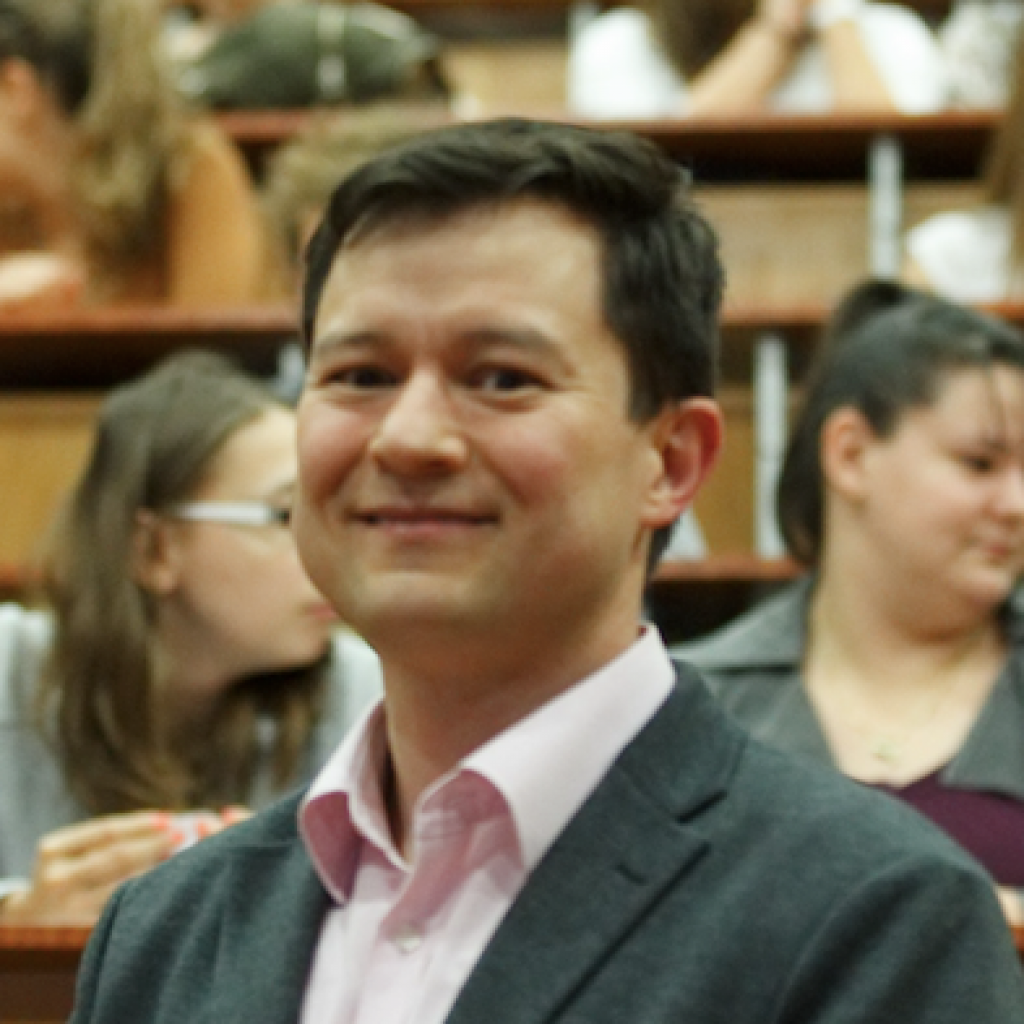
Andrew Lee is a biology professor who also advises students beginning their medical studies at Northern Virginia Community College (Alexandria campus) just outside Washington, DC. His work also includes preparing students for American medical entrance and licensing exams through one of the country’s oldest education companies, the Princeton Review.
Outside the classroom, his education research focuses on improving science communications (including how doctors communicate) and the development of interdisciplinary teaching (specifically case studies) in medical biology, public health, and more recently genomics/bioinformatics. These ongoing projects have involved collaborations with the US government’s National Institutes of Health (NIH) and scientists from all over the world. Lee has guest lectured at DC-area universities and was also as a guest lecturer at the University of Pécs, Hungary in 2017.
Lee studied biology at Harvard University, public health at Johns Hopkins University and medicine in Washington, DC. He has also conducted pre-clinical research at LMU/University of Munich’s Grosshadern Clinic and Washington University’s Barnes-Jewish Hospital (in St. Louis, MO).
Professor Lee will be joining the “Sell Yourself” class to talk about how medical students can best present themselves based on his experience as an admissions interviewer for an elite American academic program and his advising hundreds of students from around the world.
Dr. József L. Szentpéteri
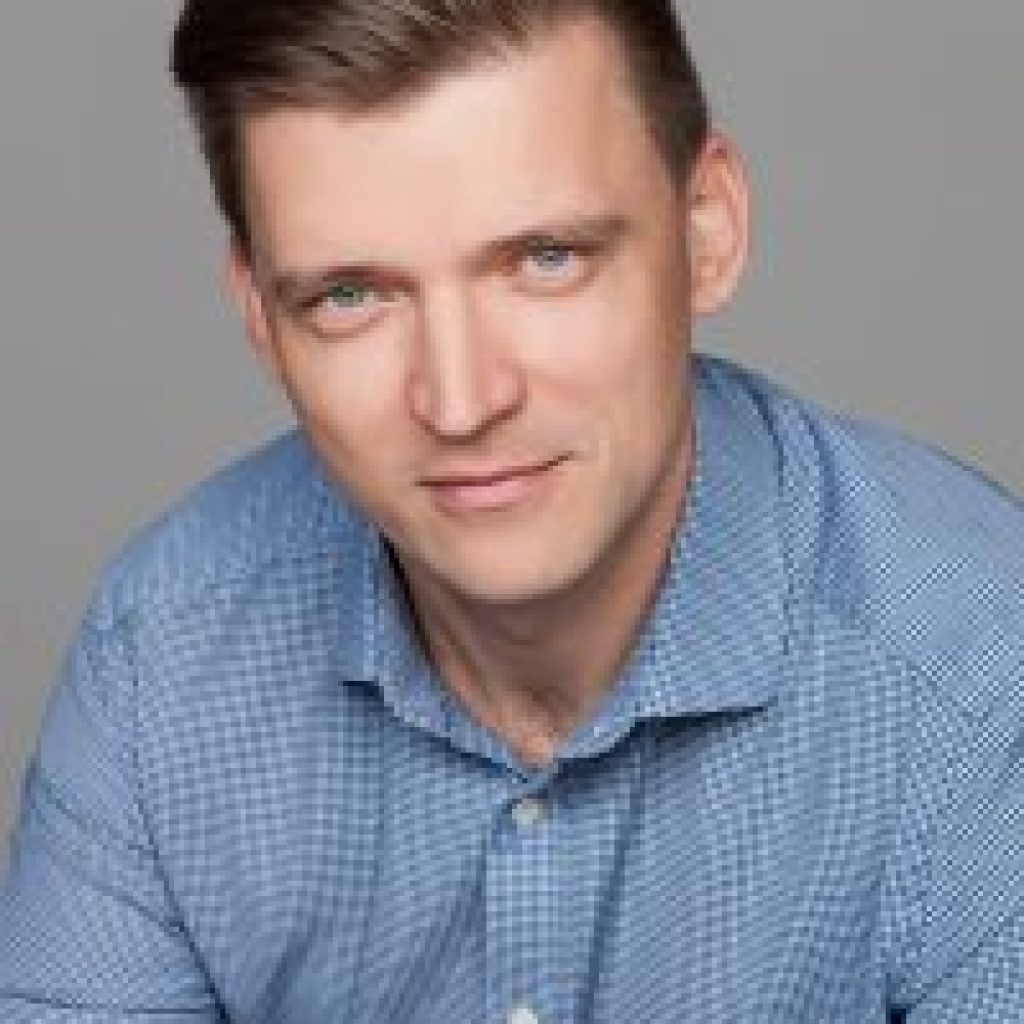
The lecturer at our institute, he is a guest speaker at Northern Virginia Community College at the invitation of Andrew Lee.
„Megtiszteltetés számomra, hogy ebben a félévben vendégelőadóként köszönthetem egy régi barátomat, Prof. Joe Petersburgert, a Pécsi Tudományegyetem Pécsi Orvostudományi Karáról. Rendszeresen csatlakozik hozzánk, hogy betekintést nyerjen a közép-európai COVID-19 járványba.
Prof. Petersburger embodies the ideals of a Renaissance scholar; he is not only a biologist, but also a photographer, former business executive, and medical communications expert. Prof. Petersburger earned his doctorate in biology from the University of Debrecen in Hungary and also was an exchange student at Duquesne University in Pittsburgh. He went on to become the first Hungarian photographer to have his work featured in National Geographic magazine. After a stint working in the pharmaceutical industry, he directed his immense talents to teaching medical students and encouraging interdisciplinary studies (through ITD, the only trans-disciplinary studies institute at a Hungarian medical school).
Please send along any questions you may have about how COVID has impacted Europe as well as any you may have regarding opportunities to study at the University of Pécs. It is Hungary’s oldest university offering courses of study in more than 300 disciplines (including the country’s oldest English language medical degree program).


